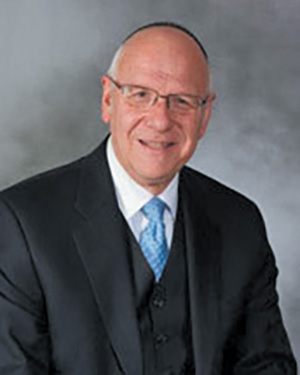
Parshat Vayishlach
The Book of Ovadya, which we read this week as our haftarah, focuses upon the sins of Edom, depicting the ultimate destruction of the nation of Edom, the descendants of Eisav. In identifying who exactly this prophet was, many meforshim, including Rashi, follow the traditional explanation that he was the self-same Ovadya who appears in Sefer Melachim I (perek 18), an attendant in the court of the wicked King Achav. In fact, the rabbis point out that the choice of Ovadya to deliver this prophecy against the nation of Eisav was most fitting, as Eisav grew up in the home of two righteous individuals, Rivka and Yitzchak, yet failed to learn proper behavior from them, paralleling the life of Ovadya who served in the house of two wicked individuals, Izevel and Achav, yet failed to be influenced by their immoral behavior.
And yet, the prophet Ovadya was not the only navi to offer harsh words to the Edomite nation. The first-Temple prophets Yeshayahu (Chapters 34 and 63), Yirmiyahu (Chapter 49) and Yechezkel (Chapters 25 and 35), as well as the Second Temple-navi Malachi (Chapter 1), all cry out against Edom and proclaim the bitter future that awaits the descendants of Eisav.
In fact, in Rabbinic writings (and, according to the approach of various parshanim), even the biblical text itself treats Edom as the archetypical enemy of Israel throughout the ages. This portrayal of Edom was so powerful that it is used in the Talmud as a synonym for the cruel Roman Empire and, by the Middle Ages it became a symbol of Christianity and the oppressive treatment that the Church inflicted upon so many Jewish communities in Europe.
Yet, it is more than curious that Edom is regarded as such. After all, during the Biblical period, Israel was subjugated by far greater empires than Edom! They were exiled from their land by Babylonia and Assyria, they were harassed for many years by the Philistines and the Arameans, yet none of these were regarded as a symbol of Israel’s great enemy. In fact, for much of the First Temple era, Edom was subjugated by Israel, and even when she threw off the yoke of Israelite domination, she hardly posed a threat to the Israelite kingdom. Why then is she regarded in such a negative light?
I would suggest that it was precisely the fact that Eisav was the brother of Yaakov yet failed to show any brotherly compassion that had his nation become the symbol of the classic anti-Semite. Our parsha quotes Yaakov Avinu beseeching Hashem to save him from the wrathful Eisav, saying: “Hatzileini na miyad achi, miyad Eisav.” The seemingly unnecessary description of Eisav as “achi,” “my brother,” seems to indicate that Yaakov understood that the fact that Eisav was his brother made the threat all the more dangerous.
Our downfall will not come from external enemies. It is our own brothers who can inflict the most harm upon us as they weaken us from within. We must always understand that no matter the disagreement, the brotherhood of our nation must never be compromised. We are brothers even during internecine conflicts. We are brothers because we all stood at Har Sinai. We are all brothers because we are all the sons of Yaakov, B’nei Yisrael.
By Rabbi Neil N. Winkler
Rabbi Neil Winkler is the rabbi emeritus of the Young Israel of Fort Lee and now lives in Israel.










